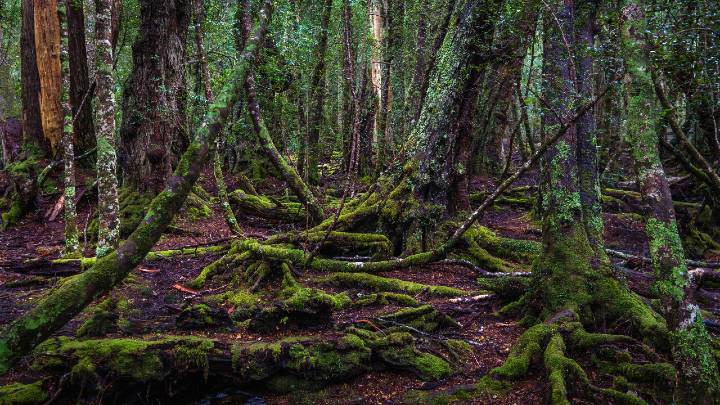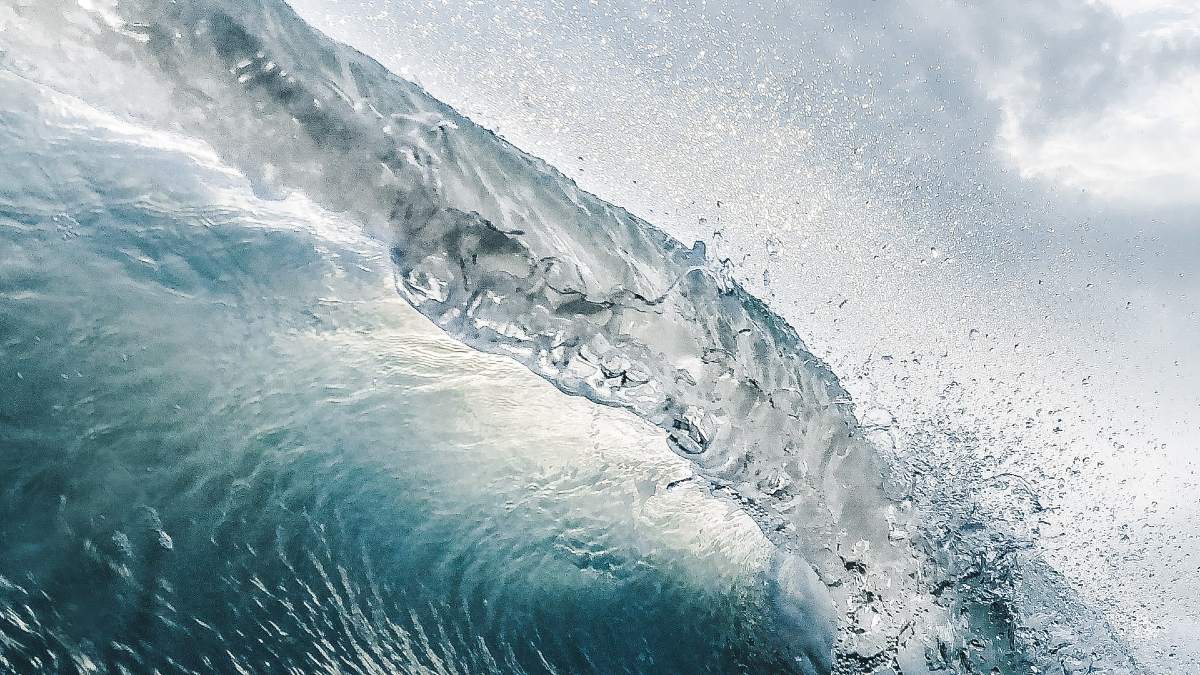Everything in nature is made up of the 5 elements of earth, water, fire, air and ether.
This time we’re exploring the adaptable and flowing water element. We’ll look at how reconnecting to this vital aspect of nature can teach us important lessons about our inner and outer world.
Picture water’s many forms. Do you flow like water? Are you rigid like ice? Are you hot and bubbling? Or are you feeling stagnant and sludgy? Whichever you most resonate with today, you can be sure that just as water changes and adapts constantly, so will you.
Sacred Symbolism of Water
In many ancient cultures, water was considered the centre of life adn held a divine energy. From bathing, fishing, travelling and drinking, to worship, mystery and power.
In the East, the Ganges river is still thought of as holy. Water deities such as Ganga, Sarasvati and Yami all govern the rivers flowing through India, with Apam Napat representing the god of fresh water, such as lakes, too.
In Egypt, the river Nile translates as ‘great water’, and is said to have been the lifeline of civilisations in Egypt since the Stone Age in a period known as Prehistoric Egypt, long before the pyramid-building Egyptians we know of today arrived.
Wherever water flows, life seems to spring up within and around it. The Greek’s also saw water significant enough to worship its god Poseidon, with the Romans revering his counterpart Neptune.
Chinese Taoist thought considers water a representation of intelligence and wisdom, softness and flexibility, whilst also symbolising the transitions of birth and death, and a more feminine or ‘yin’ energy.
Water and the Svadhisthana chakra
As ancient Eastern wisdom teaches us too, water is linked to the Svadhisthana chakra. This second or sacral chakra is located around the lower belly and represents fluidity, femininity, sensuality, joy, an ability to ‘go with the flow’, freedom, as well as the power of creativity. Every time we connect to water and raise its energy within us, we also enhance these qualities in our minds and bodies.
Perhaps it’s the fact that water covers around 70% of the planet, mirrored in the way our bodies are around 60% water. Maybe it’s the vast expanse of ocean that remains unexplored, the tales of sea-travels, whirlpools, mysterious disappearing vortexes in the middle of the sea, or the mysterious deep dark depths with almost alien creatures swimming through them. Whatever it is, water retains its mystery and fascination, and if we can start reconnecting to it in small ways in our own lives, we move ever closer to a sense of our ancient, natural human selves.
Practices to tune into the Water Element
Try using the following practices to link your 5 senses to water, as well as some movement and breathing techniques to connect to this element too:
Touch: Cold Water Therapy
If you still haven’t tried a cold shower or wild swim, it’s a joyful and a thrilling experience (trust me!)
Whilst it’s important to interact with cold water safely – especially outdoors – regular cold water experiences can do wonders for the body and mind. Now becoming more popular thanks to Wim Hof (the ‘ice man’), more and more of us are experiencing benefits like reduced anxiety, improved circulation, more energy, a stronger immune system, greater emotional and physical resilience, and a mood boost like no other.
Humans have immersed themselves in cold water since the beginning of time, and by doing it regularly, we reconnect to a primal, wild part of ourselves. Begin with a few seconds of cold, revitalising water whilst you’re in the shower to see how it feels.
Try the cold showers as part of the Strong Core Radiant Health program.

Taste: Sweet & Salty
The water element is linked to the tastes of sweet and salty, perhaps the two tastes favoured by most people! When we consume naturally sweet foods, this tends to have a nourishing, calming, soothing and relaxing effect on the body and mind. Salty foods awaken the taste buds, encourage the flow of digestive juices, and aid in strengthening agni – the digestive fire.
Enhance the water element within you by consuming naturally sweet foods like dates, fresh fruits, milk, cashews and rice, as well as naturally salty foods like seaweed, celery, tamari, miso, and of course good quality salt itself. When you consume these foods, notice the physical and emotional effects they have – can you feel the way they enhance saliva and digestive juices? Can you feel how they bring more ‘life’ and ‘joy’ to meals?
Smell: Petrichor
Described as an ‘earthy’ scent, petrichor is the aroma that arises when rain falls on previously dry earth, and it’s said to be one of the most pleasing scents humans enjoy. The sense of smell in itself is incredibly powerful, and when we spend time in nature after rainfall, our ability to smell certain beneficial scents can be heightened. When you’re next out walking after rainfall, take a moment to smell the trees, leaves and earth. Trees and plants also produce beneficial natural chemicals called phytoncides too, which have a positive impact on our immune system and mood levels.

Sound: Waves Against The Shore
If you’ve listened to enough guided relaxations or meditations, its likely at least one of them has been accompanied by the sound of waves lapping against the shore.
Whilst you may or may not personally find it relaxing, our brains enjoy gentle bubbling, waving or flowing water sounds, as it perceives them as non-threatening. Listening to the soothing sounds of water for a prolonged amount of time allows the mind to ‘tune out’ and can even help with sleep. Scientists liken the sounds of waves to a soothing voice telling us ‘not to worry’.
Sight: Awe-Inspiring Ocean Scenes
Feeling a sense of ‘awe’ is a powerful way to feel connected to the world around us. Research suggests that feeling awe can improve mental wellbeing, happiness, can make you feel more humble, and is a direct way to overcome the ego. There’s a strong relationship between ego-disillusion and experiencing awe, and we can use this emotion as a way to recognise the underlying unity that threads through the entirety of nature and ourselves. Looking out to sea, at the open ocean and horizon is an effective way of cultivating awe, and can be a powerful way to shift perspective. Try visiting the beach and spending some quiet time looking out to sea. If you live in a city or far from the ocean, even looking at pictures or videos of awe-inspiring images like the sea and horizon can improve wellbeing and stimulate the awe response.
Pranayama: Ocean Breath
Ujjayi breath is often taught in yoga classes as a way to bring more heat and strength into the body, but it can also be used to cultivate a state of relaxation. Max Strom – teacher, speaker and author of A Life Worth Breathing calls this type of breath ‘ocean breath’ as it sounds a little like waves on the sea. Ujjayi breath can help to stimulate the vagus nerve, linking the brain and the gut, and also serving as a key component in relaxing the nervous system. Whilst practicing this breath, visualise waves gently lapping against the shore.
Yoga Postures & Movements
To encourage a sense of watery ease and flow, practice hip-opening postures like Pigeon pose, Baddha Konasana, or a simple figure-four stretch. Move through hip circles, and practice a yoga sequence that involves flowing, circular movements and continuous movement. Notice where you tend to hold tension or tightness in your body, and visualise water flowing freely through it to encourage relaxation and release.
More in this series
- Journey through the 5 Elements: Earth
- Journey through the 5 Elements: Fire
- Journey through the 5 Elements: Air
- Journey through the 5 Elements: Ether

